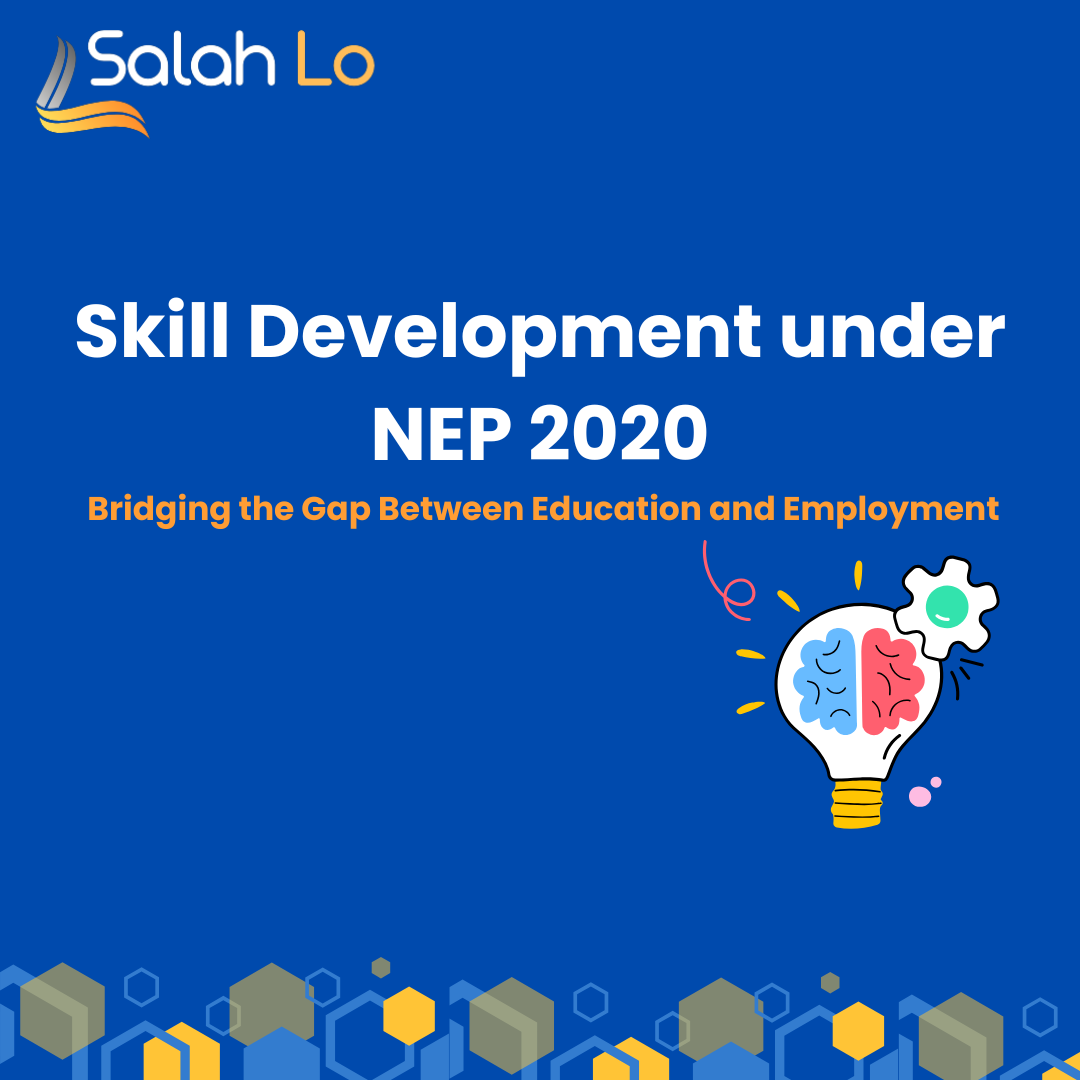Skill Development under NEP 2020: Bridging the Gap Between Education and Employment
 Salah Lo
Salah Lo
The National Education Policy (NEP) 2020 marks a transformative approach to education in India, emphasizing the need for a more holistic and integrated educational framework. One of its key pillars is skill development, aimed at bridging the gap between education and employment. This article explores the various dimensions of skill development as envisioned in NEP 2020 and its implications for students, educators, and the broader economy.
The Need for Skill Development
India faces a dual challenge: a vast youth population eager for employment and a rapidly evolving job market that demands a diverse set of skills. Traditional educational models have often focused on rote learning and theoretical knowledge, which do not necessarily prepare students for the practical demands of the workforce. The NEP 2020 seeks to address this gap by prioritizing skill development alongside academic learning.
Key Features of NEP 2020 Related to Skill Development
Integration of Vocational Education: NEP 2020 proposes the introduction of vocational education from Grade 6 onwards. This early exposure helps students acquire practical skills while still in school, ensuring they have a better understanding of potential career paths.
National Skills Qualification Framework (NSQF): The policy aims to align educational programs with the NSQF, which standardizes skill development across various sectors. This alignment facilitates a seamless transition from education to employment by ensuring that the skills taught are relevant and recognized by industries.
Skill-Based Learning: NEP 2020 emphasizes a shift towards competency-based education. This approach focuses on practical skills and hands-on experiences rather than mere theoretical knowledge, preparing students for real-world challenges.
Higher Education Institutions: The policy encourages universities and colleges to establish skill development centers that offer short-term courses and certifications. This flexibility allows students to gain additional skills alongside their degree programs.
Collaboration with Industry: NEP 2020 promotes partnerships between educational institutions and industries to create curriculum frameworks that reflect current market demands. Such collaborations ensure that students are equipped with the skills that employers are actively seeking.
Implementation Challenges
While NEP 2020 lays a robust foundation for skill development, its successful implementation faces several challenges:
Infrastructure and Resources: Many educational institutions lack the necessary infrastructure to provide quality vocational training. Investments in modern facilities and equipment are crucial for effective skill development.
Teacher Training: Educators must be trained in new pedagogical approaches that focus on skill-based learning. Professional development programs need to be established to equip teachers with the necessary tools and techniques.
Awareness and Acceptance: There is often a societal bias toward conventional academic paths, leading to a lack of awareness regarding the importance of vocational training. Changing this mindset requires concerted efforts through awareness campaigns.
Assessment and Certification: Developing robust assessment frameworks for vocational courses is essential to ensure that skills are adequately measured and certified. This will enhance the credibility of vocational training programs.
The Role of Technology
Technology plays a pivotal role in facilitating skill development. NEP 2020 advocates for the integration of technology in education, which can enhance learning experiences through:
Online Learning Platforms: Providing access to a wider array of courses and training materials.
Simulation Tools: Allowing students to practice skills in a safe, controlled environment.
Data Analytics: Helping institutions assess student performance and tailor skill development programs accordingly.
Conclusion
Skill development is a cornerstone of NEP 2020, aiming to create a more skilled and employable workforce in India. By integrating vocational education into the mainstream education system, fostering industry partnerships, and leveraging technology, the policy seeks to bridge the existing gap between education and employment. However, its success hinges on addressing implementation challenges, ensuring adequate resources, and shifting societal perceptions towards skill-based learning. As India navigates its demographic dividend, the emphasis on skill development through NEP 2020 is not just a policy shift; it is a crucial step toward building a resilient and future-ready workforce.
Subscribe to my newsletter
Read articles from Salah Lo directly inside your inbox. Subscribe to the newsletter, and don't miss out.
Written by
